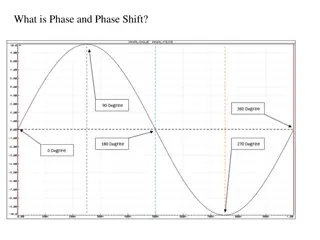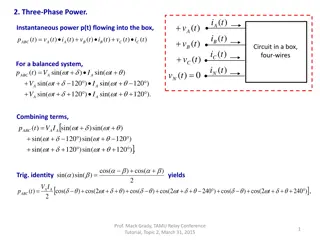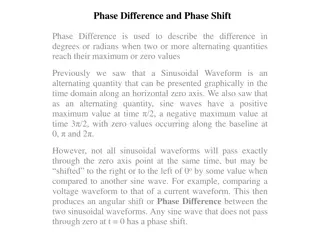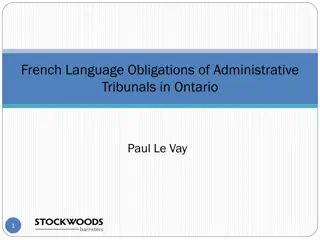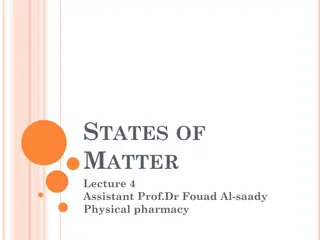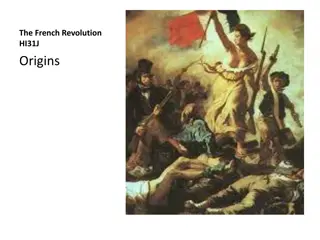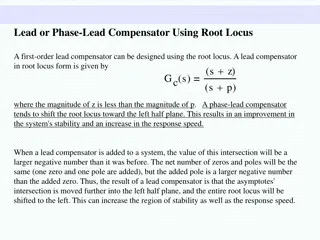The Radical Phase of the French Revolution
Strong reactions in neighboring countries sparked the radical phase of the French Revolution, leading to the establishment of the First French Republic. The Jacobin party, sans-culottes, and Reign of Terror are significant events during this period, marked by the execution of Louis XVI and the pursuit of de-Christianization. The revolutionary changes included the abolition of slavery and primogeniture, adoption of the metric system, and the emergence of citizen-soldiers reflecting modern nationalism.
Download Presentation

Please find below an Image/Link to download the presentation.
The content on the website is provided AS IS for your information and personal use only. It may not be sold, licensed, or shared on other websites without obtaining consent from the author. Download presentation by click this link. If you encounter any issues during the download, it is possible that the publisher has removed the file from their server.
E N D
Presentation Transcript
THE FRENCH REVOLUTION: THE RADICAL PHASE Strong reactions in neighboring countries sparked the radical phase of the revolution which resulted in the establishment of the First French Republic.
Most were satisfied with initial reforms but the Jacobin party pushed for a republic, no king Girondists The Mountain June, 1791 Louis XVI attempts to flee France August, 1791 Declaration of Pillnitz Early 1792 Prussia and Austria invade France at the request of Louis XVI and migr s April, 1792 France declares war on Austria and Prussia Legislative Assembly deposed Louis XVI and called for an election of a National Convention to write a new constitution
Summer of 1792 the sans-culottes emerge as major players in the Paris Commune and they wanted an economic revolution to follow the political revolution September Massacres of 1972 September, 1792 First French Republic proclaimed Abolished imprisonment for debt Abolished slavery Adopted the metric system Divorce initiated by women Planned a national educations system Prohibited primogeniture New calendar established Established the Cult of the Supreme Being Citizen Louis Capet, formerly Louis XVI, executed January 21, 1793 February, 1793 Britain, the Netherlands, and Spain get involved in the war against revolutionary France
After the execution of Louis XVI, radicals republicans responded to opposition at home and war abroad by instituting the Reign of Terror, fixing prices and wages, and pursuing a policy of de-Christianization April, 1793 Committee of Public Safety formed headed by Maximillian Robespierre June, 1793 Law 22 Prairial August, 1793 Levee en Masse mobilization of the economy for the war military draft for all unmarried men military was 3 to 4 times the size of the enemies young men rose up the ranks based on abilities instead blood (Napoleon) birth of modern nationalism citizen-soldiers fought enthusiastically not for their province or city, feudal lord or king, but for their nation.
Reign of Terror (fall 1793 to summer 1794) 300,000 arrested and 40,000 executed Domestic opposition to the revolution was crushed July, 1794 Thermidorian Reaction Eventually the public turned against the Terror and its leaders and the moderates regained controlled of the National Convention Constitution of Year III The Directory










